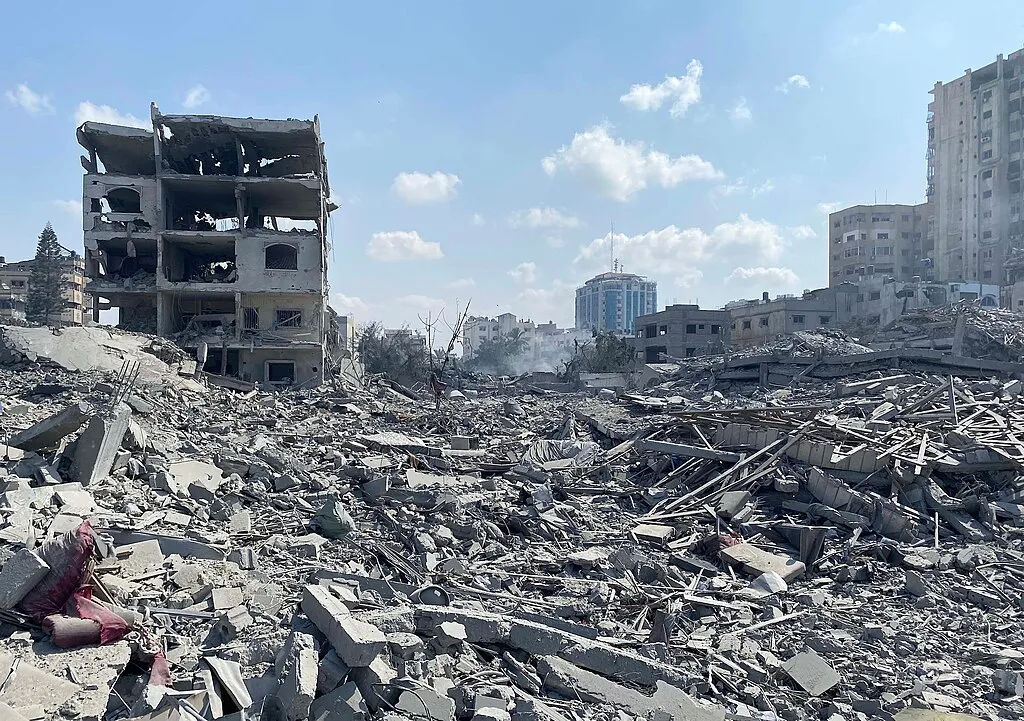As the U.S. Congress is busy campaigning in their districts, and the media bombard people with emotion-laden news in the leadup to the Nov. 5 U.S. elections, the world is operating on a distinctly different timeline. Southwest Asia sits on a razor’s edge of exploding, as Israel expands its barbaric actions into Gaza, the West Bank, and Lebanon, and threatens to launch a full-blown attack on Iran. Iran’s President and Foreign Minister are engaging in a flurry of diplomatic activity to attempt to stave this off—President Masoud Pezeshkian spoke to French President Emmanuel Macron, and Iranian Foreign Minister Abbas Araghchi traveled to Iraq after having visited Beirut, Damascus, Riyadh and Doha in a little over a week.
Nonetheless, Israel is still promising to retaliate against Iran following the latter’s strike on Oct. 1—threatening to engulf the entire region into flames. A conflict between Israel, a secret nuclear power with the full backing of the U.S., and Iran, which has recently increased its defense relationship with Russia and is rumored to be capable of scaling up production for a crude nuclear bomb in mere days, indicates just how easily this could become a global nuclear conflict.
Notions that the “liberal” and “democratic” West will any longer have even modest credibility in the future have essentially been dashed, as reports are now coming in that Israel is moving toward a full “surrender or starve” campaign for the northern part of the Gaza Strip—home to approximately 300,000 people. This is on top of the growing reports of sniper bullets found in Palestinian children, and the recent attack on Al-Aqsa Martyrs Hospital in central Gaza which burned patients alive. All the while, the U.S. continues to “stand with Israel,” and has now announced it will send an advanced THAAD missile defense system—along with American troops—to Israel. This situation is reaching an absolute breaking point, and cannot be allowed to go on.
In Ukraine, it is no better. Despite the indications that a policy change is in the works, as more and more admit that a Ukrainian victory over Russia is impossible, there is zero indication that the West’s overall strategy of seeking the strategic defeat of Russia has changed. President Joe Biden will now be traveling to Germany later this week, although it remains to be seen whether he will announce anything beyond mere platitudes and sympathies to Ukraine. Following the departure last week of Anatoly Antonov, Russia’s Ambassador to the U.S., communication between the two superpowers has now become nonexistent—an utterly catastrophic situation given the fact that the U.S. is all but at war with Russia.
The world now stands at its most dangerous moment in known history. At the same time, it stands at its greatest moment of flux and potential, as the post-World War II “order” is collapsing around us.
“But who should I vote for?” the stubborn fool demands to know. “You must choose one, after all!” In fact, the perpetuation of this delusion, exemplified by the electoral pragmatism of Americans, only guarantees that the moment for real, genuine change will be missed. The real question is: “What is history calling upon me to do?”
Honestly approaching that question is the first step in solving the crisis today. However, after consideration of that first question, a second one quickly emerges: “What is the state of the world such that one small mistake could lead to the extinction of humanity—and what must be done to change that?” As impractical as it may seem to those conditioned by routines of the news cycle, the most important decision you will make is not who to vote for, but what quality of change you will work to implement.
This question was usefully taken up in an opinion column by the Editorial Board of China’s semi-official Global Times on Oct. 13, in response to the call by the director-general of the Department of Arms Control of the Foreign Ministry of China Sun Xiaobo. We must establish “a world free of nuclear weapons,” Sun said Oct. 10 to a UN committee on Disarmament and International Security. Elaborating on this, Global Times writes: “The post-World War II international order, including the nuclear deterrence strategy of the Cold War, has not adequately addressed the fundamental issues surrounding nuclear weapons. While the concept of mutually assured destruction may have prevented direct conflict between nuclear powers, it has kept the world living under a constant shadow of the nuclear threat… We need a nuanced understanding of global security dynamics that goes beyond simplistic ‘us versus them’ narratives.… We need a paradigm shift in the approach to global security,” an approach which “recognizes that in an interconnected world, the security of one nation is inextricably linked to the security of all.”
In other words, a new security and development architecture, as Helga Zepp-LaRouche has called for since spring of 2022. Only such a new system can stand a chance to guarantee mankind’s survival at this late date. This, and nothing less, is the question determining history today.







